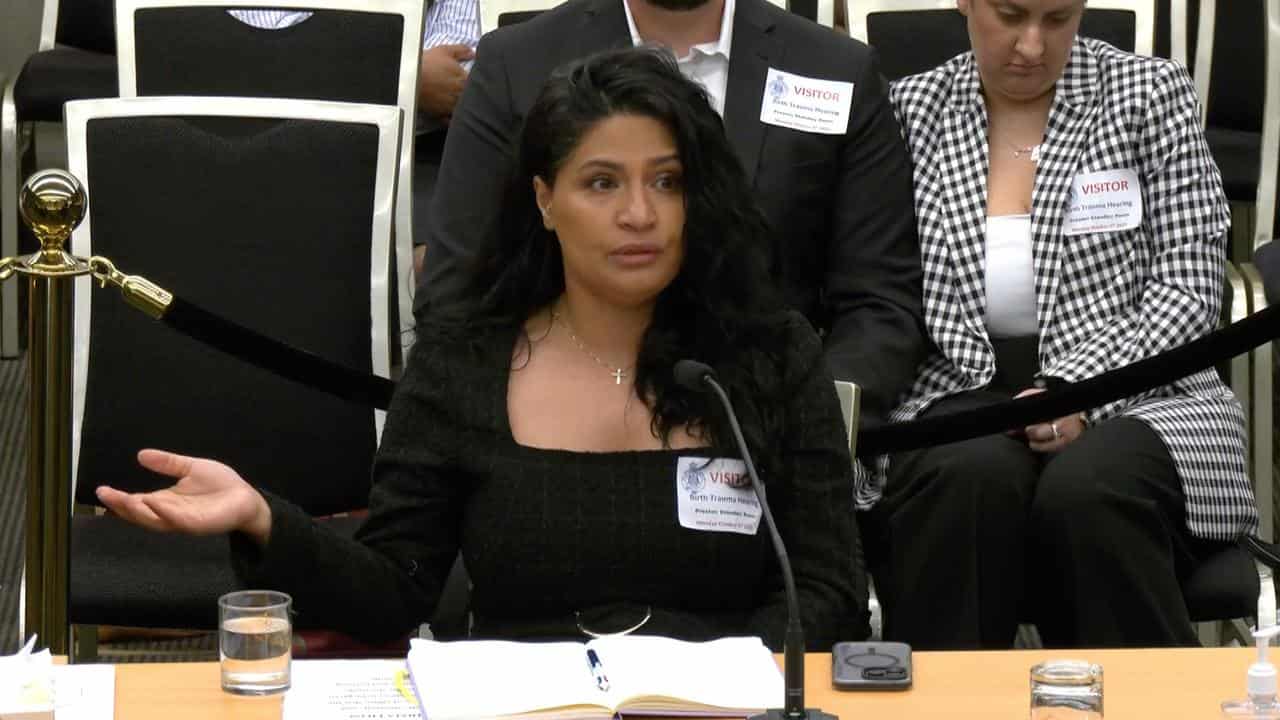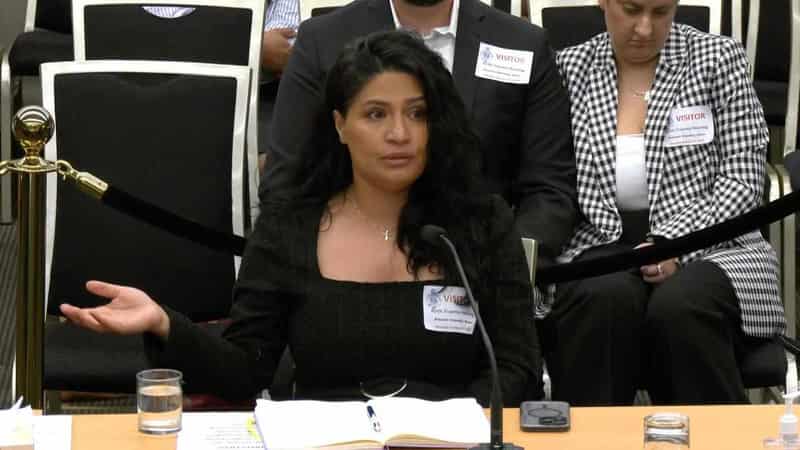
Systemic racism inside hospitals coupled with dismissed pain and a lack of informed consent is contributing to traumatic births for many women, an inquiry has been told.
A NSW parliamentary inquiry into birth trauma has heard the health of a baby is often prioritised over the wellbeing and autonomy of the mother, while Australia's peak body for doctors argues expectant parents need to be more realistic birthing education.
Several women shared details of birth experiences that injured them physically and mentally.
Six weeks after being granted a protection visa and settling in Australia, Elahe Yazdani discovered she was pregnant with her first baby.
As a single mum in a new country, Ms Yazdani said she had little support during and after her pregnancy and was often given information in English, even though it was not her first language.
At 41 weeks, she was forced to have an induction and later an emergency caesarean against her wishes.
She was also asked to sign medical consent papers without adequate translation and interpretation services.
"Because my hair is black, because English is not my first language, because I'm a refugee, because my skin is brown, why don't you care about me? I'm here like any other patient," she said.
Dulce Munoz said sexism, racism and ageism in the state's hospitals was systemic.
After a 72-hour labour during which her pain was regularly dismissed as "normal", she then had to undergo an emergency caesarean in 2010.
Ms Munoz said healthcare professionals need to educate women about informed consent and their rights during childbirth.
"The fact that we expect women to go through pain, unnecessary pain, is the root of all this," she said.
"I felt I was dying inside ... but no one believed me because I was expected to be in pain because I was giving birth."
Maternity Consumer Network president Emilia Bhat said many women, regardless of their race, felt their concerns were dismissed during birth in favour of the baby's wellbeing.
"Women are told all that matters is their baby and that makes them feel like their wishes and needs don't matter," she said.
Australian Medical Association of NSW vice president Kathryn Austin said there is a desperate need for funding of birth education and health literacy to properly prepare soon-to-be parents.
Dr Austin said no birth comes without risks and birth impacts occur in almost every delivery, with or without intervention.
"Birth is often low risk until it's not anymore," she told the inquiry.
"Doctors are forced to make split second decisions to save mother, baby, or both.
"Often parents do not understand why decisions are taken because they have not been fully educated about the potential need for intervention before birth."
Of all the women in Australia who gave birth vaginally in 2019, 85 per cent suffered some degree of perineal trauma and one in five women will require some form of instrumental intervention in their delivery in their first pregnancy, according to the Australian Institute of Health and Welfare.
"A lack of understanding of the scope and frequency of these birth impacts has contributed to the levels of trauma," Dr Austin said.
Dr Austin said many parents have unrealistic expectations of the control they will have and the possibility of requiring medical intervention should be seen as a part of the normal birthing progress process, not an unexpected or traumatic outcome.









